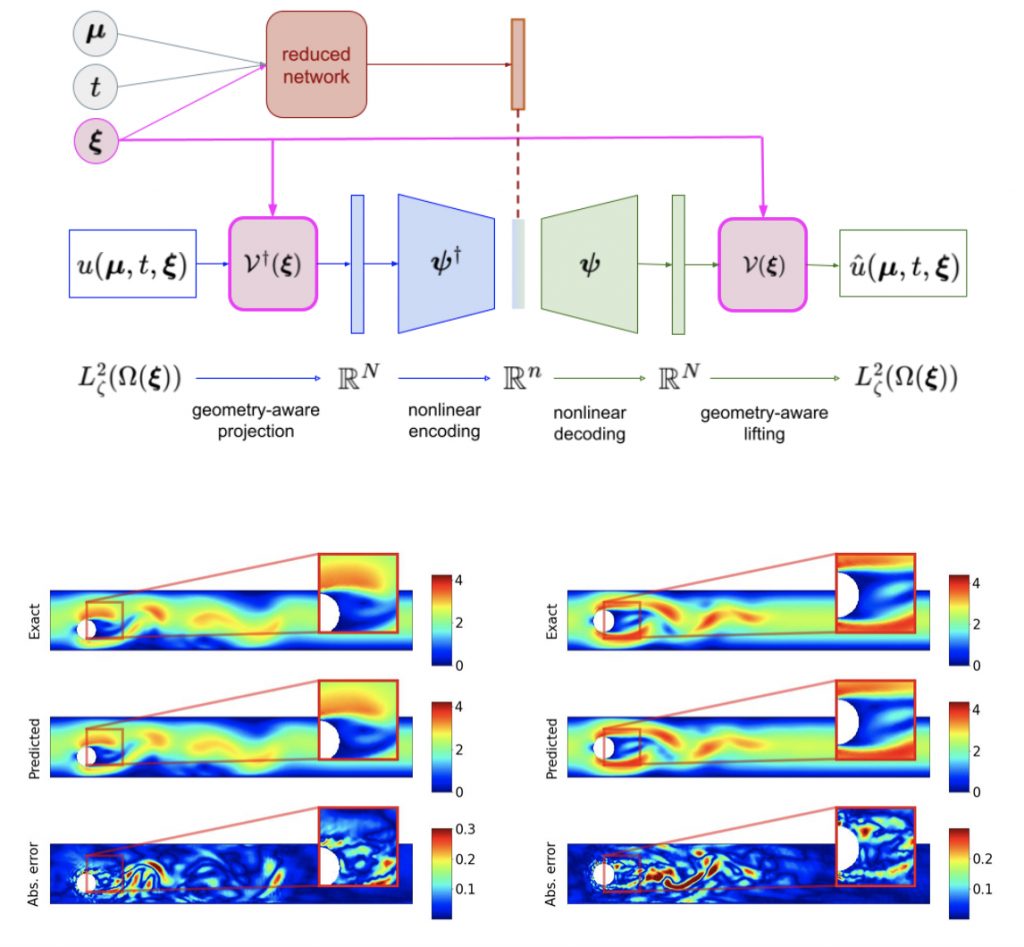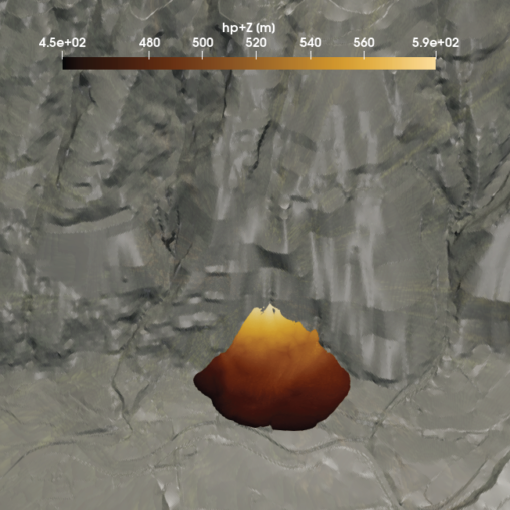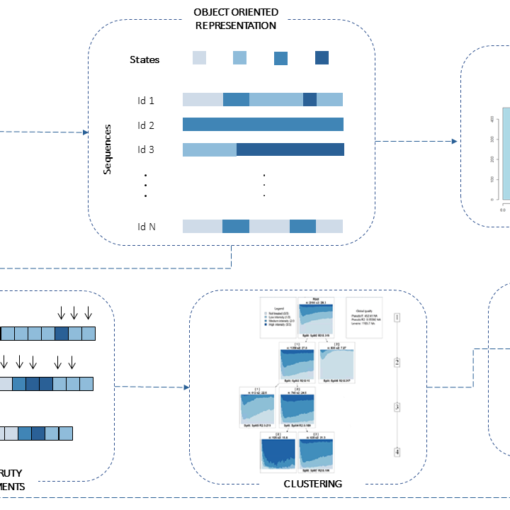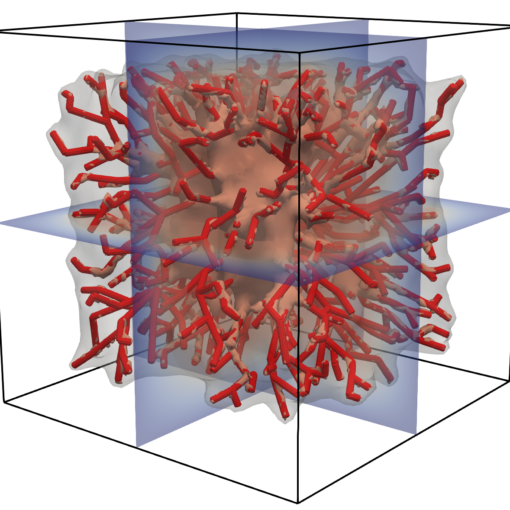A new MOX Report entitled “Handling geometrical variability in nonlinear reduced order modeling through Continuous Geometry-Aware DL-ROM” by Brivio, S.; Fresca, S.; Manzoni, A. has appeared in the MOX Report Collection.
Check it out here: https://www.mate.polimi.it/biblioteca/add/qmox/44-2025.pdf
Abstract: Deep Learning-based Reduced Order Models (DL-ROMs) constitute a consolidated class of techniques that aim at providing accurate surrogate models for complex physical systems described by Partial Differential Equations (PDEs) by nonlinearly compressing the solution manifold into a handful of latent coordinates. Until now, the development of DL-ROMs mainly focused on physically parameterized problems. Within this work we provide a novel extension of these architectures to problems featuring geometrical variability and parametrized domains, namely, we propose Continuous Geometry-Aware DL-ROMs (CGA-DL-ROMs). Specifically, we emphasize that the space-continuous nature of the proposed architecture matches the necessity to deal with multi-resolution datasets, which are quite common in the case of geometrically parametrized problems. Moreover, CGA-DL-ROMs are endowed with a strong inductive bias that makes them aware of geometrical parametrizati! on, thus enhancing both the compression capability and the overall performance of the architecture. Within this work we justify our findings through a suitable theoretical analysis and we experimentally validate our claims by means of a series of numerical tests encompassing physically-and-geometrically parametrized differential problems ranging from the unsteady Navier-Stokes equations for fluid dynamics to advection-diffusion-reaction equations for mathematical biology.





